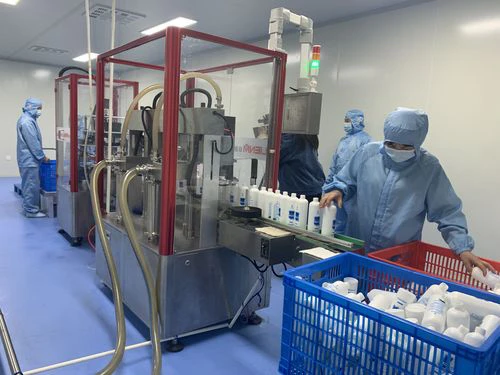- Afrikaans
- Albanian
- Amharic
- Arabic
- Armenian
- Azerbaijani
- Basque
- Belarusian
- Bengali
- Bosnian
- Bulgarian
- Catalan
- Cebuano
- Corsican
- Croatian
- Czech
- Danish
- Dutch
- English
- Esperanto
- Estonian
- Finnish
- French
- Frisian
- Galician
- Georgian
- German
- Greek
- Gujarati
- Haitian Creole
- hausa
- hawaiian
- Hebrew
- Hindi
- Miao
- Hungarian
- Icelandic
- igbo
- Indonesian
- irish
- Italian
- Japanese
- Javanese
- Kannada
- kazakh
- Khmer
- Rwandese
- Korean
- Kurdish
- Kyrgyz
- Lao
- Latin
- Latvian
- Lithuanian
- Luxembourgish
- Macedonian
- Malgashi
- Malay
- Malayalam
- Maltese
- Maori
- Marathi
- Mongolian
- Myanmar
- Nepali
- Norwegian
- Norwegian
- Occitan
- Pashto
- Persian
- Polish
- Portuguese
- Punjabi
- Romanian
- Russian
- Samoan
- Scottish Gaelic
- Serbian
- Sesotho
- Shona
- Sindhi
- Sinhala
- Slovak
- Slovenian
- Somali
- Spanish
- Sundanese
- Swahili
- Swedish
- Tagalog
- Tajik
- Tamil
- Tatar
- Telugu
- Thai
- Turkish
- Turkmen
- Ukrainian
- Urdu
- Uighur
- Uzbek
- Vietnamese
- Welsh
- Bantu
- Yiddish
- Yoruba
- Zulu
דצמ . 22, 2024 11:45 Back to list
genta gentamicin sulfate
Gentamicin Sulfate An Overview
Gentamicin sulfate is an antibiotic belonging to the aminoglycoside class of medications. It is primarily used to treat various infections caused by gram-negative bacteria, and it is an essential agent in modern medicine due to its effectiveness against a range of pathogens. This article delves into the properties, uses, mechanism of action, side effects, and considerations associated with gentamicin sulfate.
Properties and Mechanism of Action
Gentamicin is produced by the bacterium Micromonospora purpurea, and it works by inhibiting bacterial protein synthesis. It binds to the 30S ribosomal subunit of bacteria, causing misreading of mRNA. As a result, the production of proteins necessary for bacterial growth and replication is disrupted, leading to bacterial cell death. Gentamicin is effective against many strains of bacteria, including Pseudomonas aeruginosa, Escherichia coli, and various species of Staphylococcus.
Gentamicin sulfate is usually administered intravenously or intramuscularly, but it can also be applied topically in certain formulations. The choice of method depends on the type and severity of the infection being treated. Because of its high potency and quick action, gentamicin is often considered a first-line treatment for severe infections.
Uses of Gentamicin Sulfate
Gentamicin sulfate is employed in treating various infections, including
1. Severe Infections Often used to manage infections in hospitalized patients, particularly those with compromised immune systems. 2. Urinary Tract Infections (UTIs) Effective against gram-negative bacteria that commonly cause UTIs. 3. Respiratory Infections It can be used in combination with other antibiotics to target infections in the lungs. 4. Intra-abdominal Infections In cases of sepsis or peritonitis, gentamicin is often used in combination therapy. 5. Skin Infections Topically applied formulations are utilized for treating superficial skin infections.
genta gentamicin sulfate

As resistance to antibiotics becomes a growing concern, gentamicin remains a pivotal option due to its strong efficacy against resistant pathogens. Its role in treating complex infections, especially in hospital settings, is invaluable.
Side Effects and Considerations
While gentamicin sulfate is an effective antibiotic, it carries the risk of several side effects. Common side effects include
- Nephrotoxicity Gentamicin can cause kidney damage, particularly when used in high doses or over extended periods. Regular monitoring of kidney function is critical during treatment. - Ototoxicity It can lead to hearing loss, particularly in patients with pre-existing conditions or when used in conjunction with other ototoxic drugs. Hearing assessments may be required. - Neuromuscular Blockade Though rare, gentamicin may cause neuromuscular paralysis in susceptible individuals.
It's essential for healthcare providers to weigh the benefits of gentamicin versus the potential risks, especially in vulnerable populations, including the elderly and those with existing kidney or auditory issues. Adjustments to dosing may be necessary based on kidney function, and healthcare professionals often conduct therapeutic drug monitoring to optimize dosing.
Conclusion
Gentamicin sulfate remains a crucial weapon in the fight against bacterial infections. Its effective action, especially against multidrug-resistant organisms, makes it an important tool in both outpatient and inpatient settings. However, the potential for significant side effects requires careful consideration and monitoring by healthcare providers. As antibiotic resistance continues to pose challenges, ongoing research into gentamicin and similar agents is essential to ensure their appropriate use and effectiveness in treating infections.
In summary, gentamicin sulfate is not only a testament to the advancements in antibiotic development but also serves as a reminder of the importance of responsible prescribing practices and vigilant patient monitoring to mitigate risks associated with its use.
-
Guide to Oxytetracycline Injection
NewsMar.27,2025
-
Guide to Colistin Sulphate
NewsMar.27,2025
-
Gentamicin Sulfate: Uses, Price, And Key Information
NewsMar.27,2025
-
Enrofloxacin Injection: Uses, Price, And Supplier Information
NewsMar.27,2025
-
Dexamethasone Sodium Phosphate Injection: Uses, Price, And Key Information
NewsMar.27,2025
-
Albendazole Tablet: Uses, Dosage, Cost, And Key Information
NewsMar.27,2025













